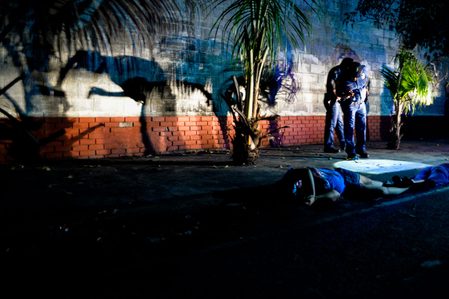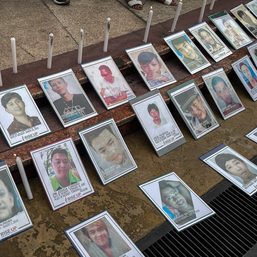SUMMARY
This is AI generated summarization, which may have errors. For context, always refer to the full article.

MANILA, Philippines – Commissioner Leah Tanodra-Armamento will lead the embattled Commission on Human Rights (CHR) in the closing months of the tenure of President Rodrigo Duterte, an administration marked by blood and violence.
CHR announced the appointment of Armamento on Wednesday, February 16. Her appointment paper, as seen by Rappler, was signed by Duterte on Monday, February 14.
She is set to serve until May 5, 2022 – or the unexpired term of her predecessor, former chairperson Jose Luis Martin “Chito” Gascon who passed away in October 2021 due to COVID-19.
Armamento is no stranger to the CHR, having been part of the commission’s present en-banc whose members were appointed under the Aquino administration in June 2015.
Prior to joining CHR, Armamento held various government positions. She worked at the Department of Justice for more than three decades, serving as state prosecutor, senior state prosecutor, and assistant chief state prosecutor, before ending her DOJ stint as undersecretary upon her appointment at the CHR in 2015.
Before DOJ, Armamento worked for five years as an associate solicitor under the Office of the Solicitor General.
Armamento obtained her law degree from the Ateneo De Manila University School of Law and was also a fellow of Harvard University’s John F. Kennedy School of Government in 2007.
Crucial months
Armamento will lead CHR during the tail end of the Duterte administration, a presidency marked by intense culture of impunity, violence, ruthlessness, and fear. She is set to oversee investigations into various human rights violations under Duterte, including the thousands killed in his centerpiece anti-illegal drugs campaign.
Government data shows that Duterte’s war on drugs has killed at least 6,225 people in police operations alone as of December 31, 2021. Human rights groups estimated the number to reach 30,000 to include those killed vigilante-style.
Aside from Armamento, CHR Commissioners Karen Gomez-Dumpit, Gwendolyn Pimentel-Gana, and Roberto Cadiz – will step down by May 5, 2022, triggering fears and concerns among human rights groups regarding the future of an en-banc entirely appointed by Duterte.
CHR, the country’s national human rights institution, continues to face challenges in conducting its probes into the drug war killngs. Aside from not having access to vital documents, the commission is consistently sidelined, if not excluded, by the DOJ in its much-touted drug war review panel. (READ: In Duterte’s drug war, justice is ‘nearly impossible’)
This reality persists despite calls from both local and international bodies, including the United Nations, to include CHR and civil society in the review.
The International Criminal Court, meanwhile, began its formal investigation into the drug war deaths, with the ICC pre-trial chamber saying in September 2021 that the killings “took place pursuant to or in furtherance of a state policy.” – Rappler.com
Add a comment
How does this make you feel?









![[EDITORIAL] Sorry Arnie Teves, walang golf sa kulungan](https://www.rappler.com/tachyon/2024/03/animated-arnie-teves-arrest-carousel.jpg?resize=257%2C257&crop=310px%2C0px%2C720px%2C720px)

There are no comments yet. Add your comment to start the conversation.